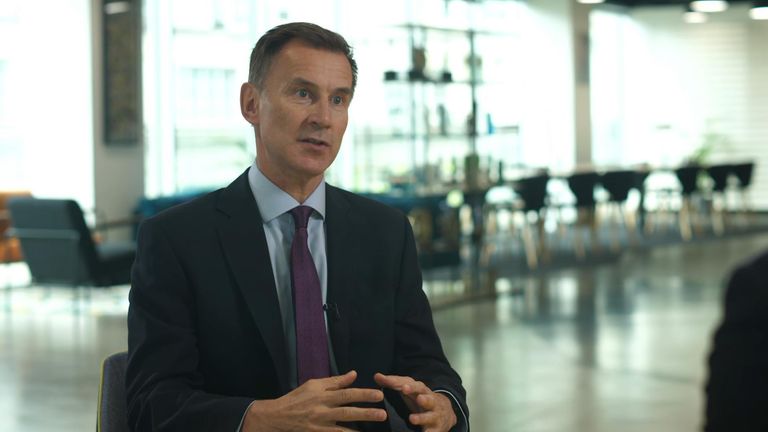UK ‘at risk of recession next year’, think tank warns


The UK is on course to experience five years of “lost” economic growth and is at risk of a recession next year, according to an economic think tank.
The National Institute of Economic and Social Research (Niesr) said by 2024 income inequality will have grown, along with unemployment and levels of debt.
Researchers, writing in the think tank’s latest quarterly outlook, said “elevated housing, energy and food costs” would continue into next year, while gross domestic product (GDP) – a key indicator of a country’s economic output – would likely “barely grow”.
It said GDP was currently 0.5% below the level it was before the pandemic, and would not pass that level for another year – but also cautioned the outlook was “highly uncertain”.
“There are, in fact, even chances that GDP growth will contract by the end of 2023 and a roughly 60% risk of a recession at the end of 2024,” the think tank warned.
Its last forecast in February predicted that the UK would avoid a recession in 2022 – but said the strain from the cost of living crisis would make it “feel like” one.
Niesr’s outlook is more pessimistic than the Bank of England’s forecasts last week, which came as it raised the base rate for the 14th time in a row.
The Bank suggested a recession was unlikely in the coming years but did imply that the economy will effectively flatline all the way through to 2026.
Its chief economist, Huw Pill, also recently warned that food prices may not fall back to what they were prior to the war in Ukraine.
Advertisement
Read more from business:
Miserable weather hits summer clothes sales
Publisher Simon & Schuster sold for £1.27bn
On UK inflation, Niesr forecast that it will remain above the Bank’s 2% target until 2025, but said it could fall to 5.2% by the end of this year.
Real-terms wages in many UK regions are also expected to be below pre-pandemic levels by the end of 2024, according to the forecasts.
The poorest households will also experience a 17% shortfall in their disposable incomes in 2024 compared with five years earlier, while the richest households will only see a 5% drop, researchers predicted.
Professor Stephen Millard, Niesr’s deputy director for macroeconomic modelling and forecasting, said the “triple supply shock” of Brexit, the COVID pandemic and Russia’s invasion of Ukraine were major factors behind the dire economic outlook.
He said “the monetary tightening that has been necessary to bring inflation down” had also played a role.
Professor Millard added: “The need to address the UK’s poor growth performance remains the key challenge facing policy makers as we approach the next election.”
Please use Chrome browser for a more accessible video player
0:43
Chancellor: ‘We recognise pain for families’
It comes after chancellor Jeremy Hunt said last week that he was working on plans to get the UK economy back on track.
He told Sky News: “What you’ll see from me in the autumn statement is a plan that shows how we break out of that low growth trap and make ourselves into one of the most entrepreneurial economies in the world.”

